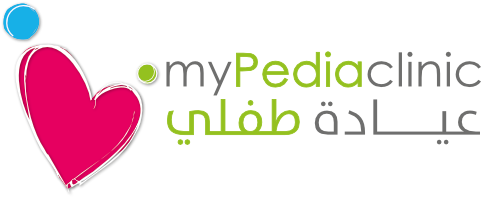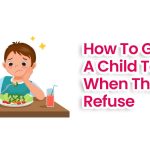The immense excitement of holding your baby for the first time is incomparable. In the middle of the joy of new life, it is critical to recognise the importance of your postnatal care. Postpartum recovery is equally important as it allows you to restore strength, both physically and emotionally, following childbirth. The foremost part of postpartum recovery is focusing on good food and postpartum nutrition. It can help your body repair and also encourages milk production. What you eat and drink has a significant impact on the quantity and quality of your milk supply. A well-balanced diet can help you maintain the stamina you’ll need as a busy mum.
Here’s what you must include in your daily postpartum diet:
Protein
Protein is a necessary macronutrient for a healthy pregnancy and postnatal care. Getting adequate protein in your diet is one of the most effective methods to keep all of your body’s cells happy and healthy.
Eggs are an important source of protein that can help relax sore muscles that have been contracting continually throughout the childbirth process. If you can get fortified eggs, that’s even better because you’ll get the added advantage of brain-boosting omega-3 fats. As a nursing mother, you should consume more protein and vitamin B-12. Lean meat is a great source of both.
Fibre
Constipation is another typical post-delivery side effect caused by pregnancy hormones. It can also be due to the postpartum medications you’re frequently advised to take, such as iron supplements and pain medicines. If you have a C-section, you may have to wait a week for relief because the bowels tend to halt their activity for several hours following surgery. Make sure you eat fiber-rich meals to help things go along down there.
Fiber-rich foods such as beans, broccoli, apples, avocados, whole grains, and dry fruits will help you reach a healthy weight and normalise your bowel motions.
Low-fat dairy products
Dairy products, whether yogurt, milk, or cheese, are essential for good nursing. Milk contains vitamin D, which helps to strengthen bones. Dairy products, in addition to supplying protein and B vitamins, are an excellent source of calcium. If you’re nursing, know that your milk contains calcium and it will help your baby’s bones develop. Therefore it’s critical that you consume enough calcium to meet your own needs and your baby’s. Try to include at least three cups of dairy in your diet each day.
Speak to the nutritionist at the newborn care in Dubai for advice on your dairy consumption.
Iron
Iron-rich meals, such as lean beef, can help you feel more energetic as a new mum. A shortage of iron can deplete your energy levels, making it difficult to meet the needs of your newborn baby.
Beans that are high in iron, especially those that are dark in colour like black beans and kidney beans, are a fantastic breastfeeding food, especially if you are a vegetarian. They provide high-quality, non-animal protein at an affordable price. Other iron-rich foods include lean meats, chicken, and fish, as well as fortified cereals, and leafy green vegetables.
Whole grains
Carbohydrates are your quickest source of energy during postnatal care, and you will need a lot of energy to produce milk for your infant. While simple sugars may appear to be a wonderful source of energy, they are not. They have a tendency to spike blood sugar levels quickly and then lower them quickly, leaving you weary and weak. Complex carbs found in whole grains such as quinoa, brown rice, barley, and oatmeal are fiber-rich and a healthy alternative. They are absorbed more slowly and help to stabilise your blood sugar levels, giving you energy without adding extra calories like sugary foods.
A healthy breakfast of whole-grain cereal is one of the finest foods to improve energy for new mums in the morning. Many cold cereals are supplemented with vitamins and minerals to help you fulfil your daily requirements. Stir blueberries and skim milk into a lovely bowl of oats to make a healthy, warming breakfast.
Folic acid
Even though folic acid is essential for the early development of your unborn child, it also has a significant impact after delivery. Your infant requires folic acid, an essential component found in breast milk, for optimum health, therefore you must consume enough of it for your own well-being as well. Fortified bread and cereals are good sources of folic acid. Folate is the vitamin’s natural form, and it can be found in leafy green vegetables, citrus fruits, avocados, lentils, and beans.
Fats
Fats are an important element of your diet after childbirth. You must make sure you get the proper kind of fats. Fatty fish includes omega-3 fatty acids, which help your baby’s brain development. So make sure you receive your two or three meals of tuna, salmon, catfish, or pollock every week. Consult with your nutritionist if you’re unsure about consuming any fish. Salmon, like other fatty fish, is high in a kind of lipid known as DHA. DHA is essential for your baby’s nervous system development. DHA is present in all breast milk, although levels are higher in the milk of women who consume more DHA in their diets.
Fruits and vegetables
Fill half of your plate with fruits and veggies. Fruits and vegetables include vitamins and minerals that are beneficial to your health. They also include fibre, which aids in constipation prevention. Before consuming fruits and vegetables, make sure you wash them under cold running water.
The vitamin A found in leafy green vegetables like spinach and broccoli is excellent as they have iron and vitamin C, and are a good non-dairy source of calcium. Green vegetables are low in calories and rich in antioxidants that are good for the heart.
Vitamin C from fruits and vegetables aids your body’s absorption of iron from your food. Citrus fruits like oranges and kiwifruits, as well as non-citrus fruits like papaya, guava, mangoes, and strawberries, are high in vitamin C. Vitamin C is also found in foods such as red and green bell peppers, tomatoes, and dark green leafy vegetables. Vitamin C is especially important if you are a vegetarian or a vegan to help your body better absorb iron.
Bone broth
Collagen is abundant in bone broth and is essential for postpartum tissue repair and regeneration. It can restore the tissue in your uterus and pelvic floor, repair the wound where your placenta once resided, and rejuvenate any stretched skin.
After cooking a whole chicken, it’s simple to prepare your own broth with the bones and some leftover vegetables. You can also prepare bone broth from beef, pork, or even turkey.
A soup is the ideal post-delivery nourishment. The broth is hydrating and salty, so it naturally replenishes electrolytes. Throw in some veggies in that soup for extra postpartum nutrition.
Water
You could get easily dehydrated while breastfeeding. Therefore, it is vital to keep yourself well-hydrated to maintain your energy levels and milk production.
It is also usual for women to sweat abundantly in the weeks following delivery as their bodies adjust to severe hormonal shifts. While you may be given IV fluids during delivery, you should continue to drink plenty of fluids after the baby arrives. Especially if you intend to breastfeed: lactating women are thought to require an extra litre of fluid per day than non-lactating women. Juice and milk can be consumed to provide variety to your diet and help you meet part of your fluid needs.
Here’s what you should avoid during your postpartum recovery
Caffeine: Caffeinated beverages, such as coffee or tea, should be avoided. Limit yourself to no more than 2-3 cups per day, or convert to decaf. Caffeine gets into your breast milk and can make your infant cranky and sleep badly.
Mercury-rich fish: Avoid eating high-mercury seafood and fish like shark, swordfish, marlin, king mackerel, tilefish, or orange roughy if you’re breastfeeding. Instead, choose options like salmon, prawns, cod, tilapia, trout, and halibut.
Junk foods: Reduce your intake of snacks and foods such as fried foods, soft drinks, and sweets that are heavy in added sugar, sodium, and saturated fat. Don’t let unhealthy items like cookies, donuts, potato chips, and french fries replace nutritious ones.
Alcohol: Drinking alcohol during nursing might cause hormonal disruptions that affect the milk supply. If at all you choose to consume alcohol, do it in moderation by consuming after breastfeeding or waiting 2 to 3 hours before breastfeeding to avoid giving any alcohol to your child through your breast milk.
Consult with the best nutritionist in Dubai before deciding to consume foods that might hinder your postpartum recovery.
Sleep and exercise must go hand-in-hand with a healthy diet
There are numerous methods to stay active once your doctor has cleared you to begin exercising. Walking is an excellent kind of exercise because it places no strain on your body. Your infant will like being walked in a pram as well. Try walking for 20-30 minutes briskly every day, or at least three times a week. Meet a friend or other new parents for a walk. It’s beneficial to get out of the house and socialise with friends or other new mothers. Exercise courses are another enjoyable way to get in shape, and you may be able to locate a session that includes your infant. Look for a mom-and-baby yoga class, for example.
Though life with a small infant necessitates some significant alterations, you can prepare for improved sleep by using appropriate sleep hygiene practises wherever possible. These include practises such as receiving enough sunshine early in the day, eating healthy, and exercising regularly.
When in doubt, it’s best to take advice from a professional. Speak to the best nutritionist in Dubai to start your postpartum healing your body needs.
myPediaclinic – the best newborn care in Dubai
Our experienced award-winning nutritionists and pediatricians at myPediaclinic in Dubai Healthcare City help you navigate life with a new baby by guiding you with the best postpartum nutrition advice. Our best Pediatricians in Dubai play a vital role in promoting the health and well-being of both mother and baby. Our experts also customize diet plans according to your personal needs and dietary habits.




